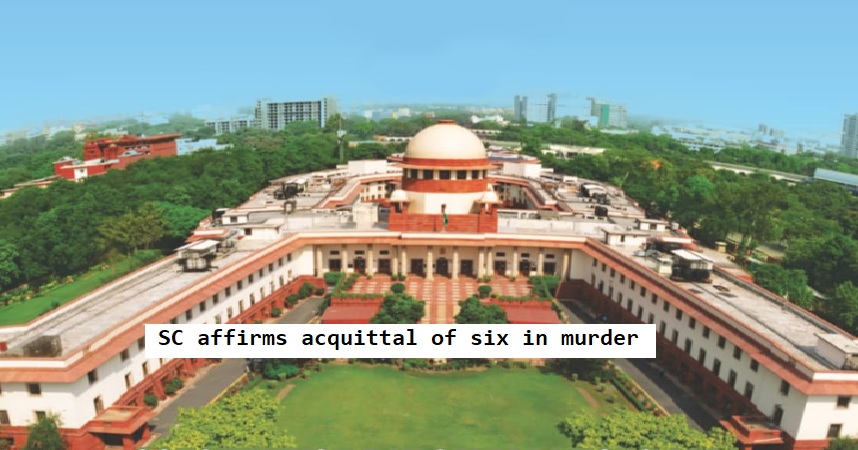


The Supreme Court has affirmed the decision of the Punjab and Haryana High Court, which overturned the conviction of six individuals in a murder case. The apex court reiterated the requirement for guilt to be established beyond a reasonable doubt based on conclusive evidence. Initially, the trial court convicted six out of ten accused persons under various sections of the Indian Penal Code, including Sections 148, 201, 149, and 302,149. However, in 2008, the High Court set aside the conviction and sentence.
The complainant, dissatisfied with the acquittal of the six accused, appealed the case. A two-judge Bench comprising Justice Abhay S. Oka and Justice Pankaj Mithal emphasized the crucial principle that a conviction must be founded on evidence proving guilt beyond reasonable doubt. The judges highlighted the failure of the prosecution to substantiate the guilt of the accused, both through circumstantial evidence and the testimony of the eyewitness. In the absence of a complete chain of events in the circumstantial evidence and doubts surrounding the credibility of the eyewitness, the High Court's decision to extend the benefit of doubt to the accused was deemed reasonable.
Advocate Anjani Kumar Mishra represented the appellant, while Advocate Chinmoy Khaladkar appeared for the respondents. The appellant's counsel argued that appellate courts exercise caution in overturning trial court convictions, especially when based on evidence, including that of the eyewitness (complainant). The complainant, who was also the sole eyewitness, served with Delhi Police, and three of the accused were associated with the same law enforcement agency.
Upon scrutinizing the lower courts' findings and the complainant's testimony, the Supreme Court noted that the appellant did not witness the actual killing or the burning of the deceased. The court clarified, "The appellant/complainant happened to be the sole eyewitness but he had neither seen anyone killing his son Kishan Sarup nor he had deposed that he had seen anyone burning the victim Kishan Sarup." The court concluded that the appellant's presence during the incident was doubtful, stating, "In view of the above situation and the other evidence on record, the very presence of the appellant/complainant even during the incident of 04.11.2000 appears to be doubtful."
Highlighting the appellant's vested interest as the father of the deceased and his longstanding enmity with the accused group, the court underscored the need to scrutinize his testimony with caution. The Supreme Court upheld the High Court's decision, affirming, "The High Court was justified in doubting [the testimony] so as to uphold the conviction on his solitary evidence." The court concluded that the prosecution failed to establish the guilt of the accused beyond a reasonable doubt, both through circumstantial evidence and the testimony of the eyewitness.
In summary, the Supreme Court's affirmation of the High Court's decision underscores the stringent requirement of proving guilt beyond a reasonable doubt. The court's scrutiny of the evidence, particularly the eyewitness testimony, highlighted the importance of cautious examination, especially when the witness has a personal interest and a history of enmity with the accused group. Ultimately, the prosecution's failure to meet the evidentiary threshold led to the acquittal of the six accused individuals.
TAGS: Supreme Court Punjab and Haryana High Court murder case conviction acquittal reasonable doubt Indian Penal Code